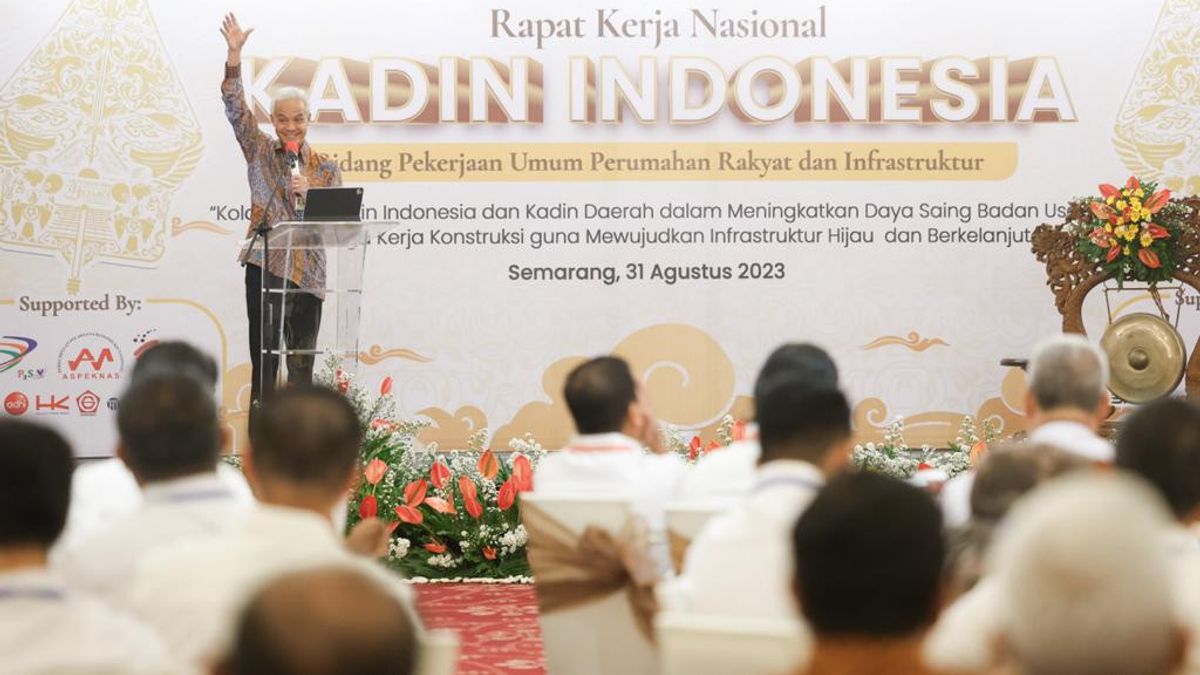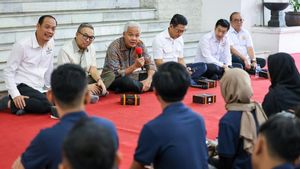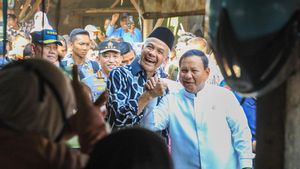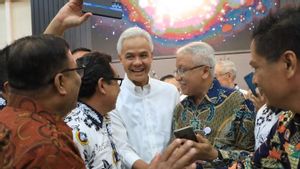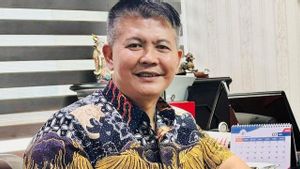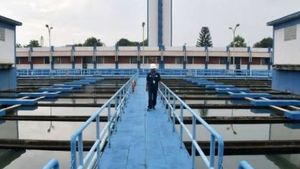Central Java Governor Ganjar Pranowo has prepared skilled human resources (HR) to build Indonesia's green infrastructure in the future through vocational schools in Central Java.
This was said by Ganjar in the National Working Meeting of the Indonesian Chamber of Commerce and Industry (Kadin) for Public Works, Public Housing, and Infrastructure at the Tentrem Hotel, Semarang City, Central Java, Thursday, August 31.
"We project what will be lacking later. The hypothesis is one, our human resources. So our human resources are what we must encourage," he said.
What Ganjar did to improve the quality of human resources, including establishing a Central Java Vocational High School. The school carries a boarding school model by freeing school, eating, and mess fees for students from underprivileged families.
Currently, there are three Central Java Vocational Schools, namely in Semarang, Pati, and Purbalingga. All schools are equipped with educational support facilities, overseas scholarship opportunities, and labor-absorbing industry cooperation.
Human resources born from SMKN Central Java are projected by Ganjar as a generation of green infrastructure development in the future. Thus, the wheels of the economy that President Joko Widodo (Jokowi) has built for 10 years can be continued.
"We must boost the human resources now so that those who maintain and develop infrastructure in the future, including those who are oriented towards environmentally friendly technology, God willing, we can get it," explained Ganjar.
Ganjar said that human resources in Indonesia will be more aggressive in moving green infrastructure if Central Java SMKN is replicated to all provinces in Indonesia. Moreover, the curriculum has been adjusted to the needs of the green economy driving industry.
"So if we can do the design from the start, then the SMK will be on the job training in a long time, three years and when we graduate it must be absorbed," he said.
The chairman of PP Kagama hopes that green infrastructure in the future can continue to be developed. So that Indonesia will be even greater and equal to developed countries in the world.
"Later the infrastructure will be directed at green technology. In my opinion, this is something that is responsive and sensitive to environmental conditions," he concluded.
In addition to three Central Java Vocational Schools, Ganjar also prepared 15 semi-boarding vocational schools similar to Central Java Vocational Schools to create green infrastructure development human resources. The 15 schools include SMKN 1 Demak, SMKN 2 Rembang, SMKN 1 Wirosari Grobogan, and SMKN 1 Jepon Blora, SMKN 1 Tulung Klaten.
Then SMKN 1 Kedawung Sragen, SMKN 2 Wonogiri, SMKN 1 Purworejo, SMKN 2 Wonosobo, SMKN 1 Punggelan Banjarnegara, SMKN 1 Alian Kebumen, SMKN 2 Cilacap, SMKN 1 Kalibagor Banyumas, SMKN 1 Tonjong Brebes, and SMKN 1 Randudongkal Pemalang.
اقرأ أيضا:
Ganjar is also increasing the number of SMKs in remote areas that do not yet have public schools in 17 sub-districts throughout Central Java. Among them are Pagentan District, Tawangmangu District, Rahtawu Hamlet, Gebog District, Kemalang District, Pancur District, Karangtengah District, Batuwarno District, Poncowarno District and Tlogomulyo District.
Then in Bejen District, Gladagsari District, Kalikotes District, Tamansari District, Ngaringan District, Madukara District, Kebonarum District, and Wonosamodro District.
The English, Chinese, Japanese, Arabic, and French versions are automatically generated by the AI. So there may still be inaccuracies in translating, please always see Indonesian as our main language. (system supported by DigitalSiber.id)
